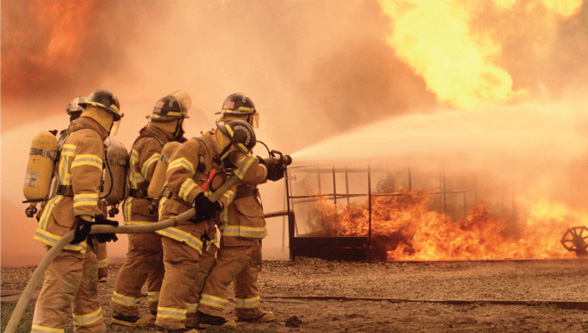MIFSE
Fire & Safety
Engineering
Effective Fire Safety Measures for Residential Buildings
August 1, 2023

Effective Fire Safety Measures for Residential Buildings
Residential buildings are sanctuaries that provide comfort and security, but they are not immune to the risks associated with fire. Ensuring proper fire safety measures within homes is an essential aspect of protecting lives, property, and personal belongings. This blog delves into effective fire safety strategies for residential buildings that homeowners and building managers can implement to create a safer living environment.
Smoke Alarms: These devices detect the early stages of a fire and provide crucial warning time. Install smoke alarms in every bedroom, outside sleeping areas, and on every level of the home.
Heat Detectors: Useful in kitchens where smoke alarms may trigger false alarms, heat detectors respond to sudden temperature changes.
Accessible Locations: Store fire extinguishers in easily accessible locations, like the kitchen and garage.
Regular Inspection: Ensure that the fire extinguisher is in working condition through regular checks and professional inspections.
Mapping Escape Routes: Create a detailed map of your home, marking all exits and escape routes.
Family Drills: Practice escape plans with family members, making sure everyone understands the procedures.
Avoid Overloading: Do not overload electrical outlets, and use extension cords sparingly.
Professional Installation: Hire qualified electricians for all electrical work to ensure compliance with safety standards.
Safe Distance: Store flammable materials like gasoline and cleaning agents away from heat sources.
Proper Containers: Use appropriate containers for flammable liquids to prevent leakage and fumes.
Fire-Resistant Walls and Doors: Consider using fire-resistant materials for walls, doors, and windows to slow the spread of fire.
Anti-Flammable Furnishings: Opt for furnishings and drapes that are treated with fire-retardant chemicals.
Annual Checks: Have heating equipment like furnaces and fireplaces inspected by professionals annually.
Safe Placement: Keep anything that can burn at least three feet away from heating equipment.
Awareness: Ensure that all residents, including children, understand the importance of fire safety and know how to respond in emergencies.
Emergency Numbers: Make sure that all occupants know the emergency numbers to call in case of a fire.
Conclusion
Effective fire safety in residential buildings is not a one-time effort but a continuous process. It requires meticulous planning, regular maintenance, and a proactive approach to risk mitigation. By embracing these measures, homeowners and residents can make informed decisions that substantially reduce the risks associated with fire.
For those seeking professional guidance and training in fire safety, the Mangalore Institute of Fire and Safety Engineering (MIFSE) is an excellent resource. Offering comprehensive education and training in fire safety, MIFSE equips individuals with the knowledge and skills needed to implement effective fire safety measures in residential settings.
In a world where safety should never be compromised, adopting these fire safety measures is not just a responsibility but a commitment to protecting what matters most. Explore MIFSE`s offerings, invest in quality fire safety equipment, and make fire safety a priority in your residential building. Together, with institutions like MIFSE leading the way, we can create homes that are not only places of comfort but also strongholds of safety.
Effective fire safety in residential buildings is not a one-time effort but a continuous process. It requires meticulous planning, regular maintenance, and a proactive approach to risk mitigation. By embracing these measures, homeowners and residents can make informed decisions that substantially reduce the risks associated with fire.